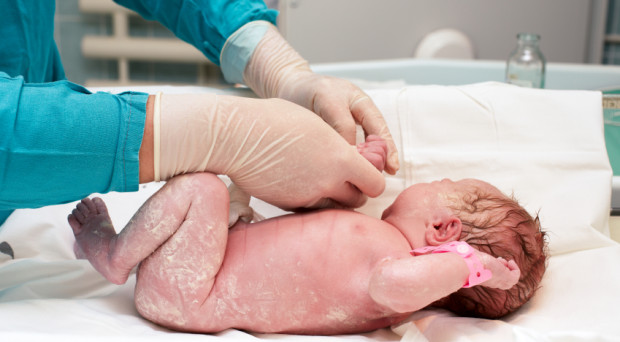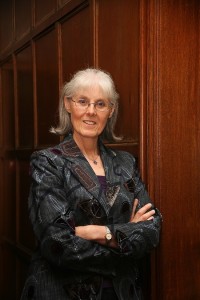
 How did you get interested in science?
How did you get interested in science?
I was always asking “why?” I wanted to know the answer to every puzzle or dilemma that presented itself. However, in my school years I was put off physics and chemistry by the amount of rote learning that was expected, and the seemingly futile repetition of experiments that we already knew the answers to.
Biology was more interesting, as it involved learning about the workings of the human body, which I enjoyed. But mathematics was my great love, and my early career plan was to study mathematics in university, and then to teach. However, in my last year in school I realized that I wanted to work with people more closely, so I chose nursing (initially) as a career.
What is your scientific background?
Nursing school involved learning human biology in more detail, but it was never enough for me – I found it too simple and I wanted to know more. After qualifying and working for some time as a nurse, I undertook midwifery training, which included much more in-depth study of the physiology of pregnancy and labour.
I loved midwifery practice, especially caring for women in labour, so, for the next twelve years, that became my focus. In 1974, the first post-registration programmes for nurse and midwives started up in the Faculty of Nursing and Midwifery in the Royal College of Surgeons in Ireland, run for 2-3 hours on set evenings per week.
I loved midwifery practice, especially caring for women in labour, so, for the next twelve years, that became my focus.
Half the programmes were science subjects (physics, chemistry, physiology, pathology) and half were humanities (sociology, psychology, communication skills). I took six of these courses over the next three years, gaining the Primary Fellowship.
At that stage I was selected to undertake a two-year full-time university course to become a registered midwife teacher. This included studying all of the first-year science, psychology and sociology programmes, as well as courses on midwifery practice, educational theory, and teaching practice. Following successful completion, I took up a hospital teaching post for the next six years, continuing to practise for some time every week as part of my clinical teaching and assessing role.
In 1982, I successfully sat the Royal College of Surgeons Final Fellowship examinations, becoming one of the first Fellows of the Faculty of Nursing and Midwifery, RCSI in Ireland. A postgraduate Diploma in Statistics, MSc by research and a PhD in Education followed and I moved into academia in 1989.
It was a wrench to leave clinical practice, but I continued to give some clinical care on a voluntary basis in the summer months, or at one of our linked Midwives’ Clinics some days during term-time.
How do you spend your day in your job?
My present post, Professor of Nursing and Midwifery, is mainly research-based. Although all academics split their role between teaching, research and contributing to the development of their university and discipline, my present research commitments are quite high, due to a number of grant funding wins that coincided.
I co-lead a longitudinal study on maternal morbidity in first-time mothers in Ireland (‘MAMMI‘ ) and I am presently leading an FP-7 funded project (‘OptiBIRTH‘), involving 11 partners in 8 different countries. We are running a cluster randomized trial testing a woman-centred intervention designed to increase the rates of women having a vaginal birth after one previous caesarean section.
So, my day is taken up with conference calls, meetings and discussions around these research projects, over-seeing data collection and analysis, and writing research papers. There is a fair bit of travelling involved, with visits to the countries taking part, and plenary speaking engagements.
I spend a lot of time working with my PhD students, and with a group of researchers in Sahlgrenska Academy in the University of Gothenburg, Sweden, where I am Visiting Professor. I teach undergraduate and MSc students my key research topics (third stage management, midwife-led care, perineal care), and take part in committee work in my university, Trinity College Dublin.
What scientific skills are required?
All midwives and nurses learn how to acquire data about people in their care, through active listening, questioning, and observing systematically
All my research is scientific and empirical, so the basic skills I learnt at the start of my midwifery career stand me in good stead.
All midwives and nurses learn how to acquire data about people in their care, through active listening, questioning, and observing systematically, followed by searching sources of knowledge, formulating key questions, identifying a problem, investigating, analyzing results and drawing conclusions – all of which are essential for good research.
The precise organizational and coping skills taught in the early years make midwives, in particular, into excellent researchers.
What do you like most about your job?
I love research. But, sadly, the more experienced you become in this field the less contact you have with actual data collection as, with funding acquisition, you employ others to conduct the research and analyze the data.
When I have time and spare finances, I conduct small pieces of research that I believe are important but funding bodies are not as interested in, and then I get to do the actual research and analysis myself; that way, I meet practising midwives and expectant women and keep in touch with what really matters.
I love writing; now it is more often that I write as part of a group, each of us taking one part of the project to write about, but there is nothing to beat the thrill of moulding, shaping and producing an exquisite paper all on one’s own.
I love teaching. Again, the more experienced you become in academia, the more PhD students you attract and the less time you have for teaching undergraduates.
I love teaching. Again, the more experienced you become in academia, the more PhD students you attract and the less time you have for teaching undergraduates. But I always make sure to teach my subjects at undergrad level – I love that contact with young students. What I dislike most about my job is not having enough interaction with expectant women, who are the key reason for all the research we do.
What would you tell your younger self?
Follow your heart. I came to where I am by what might look like a strange route, but I did it by always taking the next job that excited me, by doing every course that came my way that looked interesting and useful, and by always saying ‘yes’ to new experiences.
Where can you be reached if readers want to ask you more about your job?
People can email me directly at cbegley@tcd.ie
Join the conversation by commenting below or using the #moretoscience hashtag on twitter. Do you have a job in science that you love, or know someone who does? Contact Dana at dana.berry@biomedcentral.com or @DanaBerryBMC if you’re interested in participating in our series.
Comments